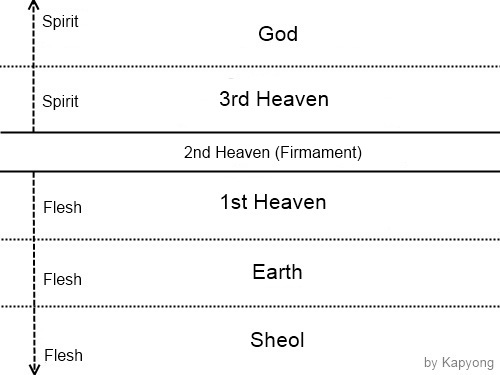neilgodfrey wrote:Leucius Charinus wrote:[
There was the Ptolemaic model which was constructed after centuries of astronomical observation and represented - essentially - a proto scientific statement. Sure there may have been variations in this model, but the fact that Mercury and Venus passed in front of the sun and Mars and Jupiter and Saturn passed behind the sun can only be explained in a geocentric model with the logic that the outer planets were further from the sun and earth, etc.
Therefore it may be argued (IMHO) that there was a generally accepted view which had been constructed by the "experts" (ie: the astronomers) concerning the placement of the earth and the moon in a series of geocentric spheres or heavens.
My preference is to explore carefully the writings of sectarians and others neo-platonic writers -- 1 Enoch, Jubilees, the various Jewish Apocalypses, Varro, Seneca, Philo, Plutarch, Apuleius, Xenocrates, who perhaps expressed more popular understandings of what was what and who was in what or passing through what and how, etc. That's where the relevant data lies imho.
I see that you have assembled an article here:
Ancient beliefs about heavenly realms, demons and the end of the world
http://vridar.org/2010/03/09/ancient-be ... the-world/
.... how alike the biblical passage is to the non biblical ideas of the day.
FWIW all references on this page to "demons" may need to be perceived in context of the Greek term "daemon" which
IMHO was subverted by the Christian ideology.
Some quotes:
"It is man's duty to follow his daimon,
which reflects the cosmic will.
This requires us to love humanity in general
and to act altruistically"
~ Marcus Aurelius
"A daemon is assigned to every man
At birth, to be the leader of his life".
~ Menander, via Ammianus Marcellinus
"We should think of the most authoritative part of the Soul
as a Guardian given by God which lifts us to our heavenly home."
~ Plato
“Although it appears as if each person
has their own Daïmon or Higher Self,
the enlightened initiate discovers that
actually on the axial Pole of Being
there is one Daïmon shared by all,
a universal Self, which inhabits every being.
Each Soul is a part of the one Soul of God.
To know oneself therefore is to know God."
~ Valentinus
"Nevertheless he has placed by every man a guardian,
every man's Daimon, to whom he has committed the care of the man,
a guardian who never sleeps, is never deceived.
For to what better and more careful guardian could He have entrusted each of us?
When, then, you have shut the doors and made darkness within,
remember never to say that you are alone, for you are not;
but God is within, and your Daimon is within, and what need
have they of light to see what you are doing?
To this God you ought to swear an oath just as the soldiers do to Caesar. .....
~ Epictetus
"And yet, remember, Arjuna, that the Spirit (Purusha energy)
dwelling in the individual body as Atma is truly Brahman, the Godhead.
This Supreme Being is spoken of as the following:
the Observer who watches and referees the game of life,
the Approver who permits it all to happen,
the Supporter who helps it all to happen,
the Enjoyer who experiences it all with gusto but knows it is a game,
and most important,
the Master who holds complete dominion over all the events
though being unafected by all of them"
~ GITA, 13.22 (Jack Hawley) p.122
"God is near you, he is with you, he is within you.
This is what I mean, Lucilius:
a holy spirit indwells within us,
one who marks our good and bad deeds,
and is our guardian.
As we treat this spirit, so are we treated by it.
Indeed, no man can be good without the help of God.
Can one rise superior to fortune unless God helps him to rise? "
~ Seneca, Epistle 41.
